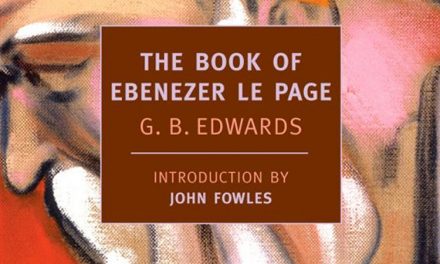As children we’re taught many different nursery rhymes. Most seem frivolous and amusing however behind every one is a history and story that’s every bit intriguing as the rhyme itself. Here are the origins of a few …
Ride a Cock Horse
To see a fine lady upon a white horse;
With rings on her fingers and bells on her toes,
She shall have music wherever she goes.
Some argue that only one historic figure could inspire such a rhyme. Step forward Lady Godiva, England’s favourite naked horsewoman.
During the 11th century, Leofric, the Earl of Mercia, tried to impose heavy taxes on his countrymen, provoking outrage and near riots. Leofric’s wife, Godgifu (changed over time to Godiva), sympathised with the common people and urged her husband to lower the new taxes he had levied.
Now, Leofric was obviously a man with a sense of humour because he told his wife he would lower taxes only after she had ridden naked through the streets of Coventry.
But he hadn’t reckoned upon Godiva’s spirit and, much to his surprise, she agreed to the challenge. The delighted people of Coventry, as a show of respect and to spare her blushes, all agreed to stay indoors, close their shutters and face the other way as the lady passed by.
She rode through the streets on her beloved white horse, completely naked apart from her wedding ring (rings on her fingers), and with bells attached to her toes to remind the people of Coventry not to look out of their windows.
All the citizens kept their word, except for Tom the tailor, who couldn’t help himself and peeped out through the shutters – hence the expression ‘Peeping Tom’. According to legend, Tom was then struck blind.
Doctor Foster
Went to Gloucester
In a shower of rain.
He stepped in a puddle
Right up to his middle
And never went there again
One theory runs that the origins of this verse stretch back more than 700 years to Edward I (1239-1307), who was known by the nickname of Dr Foster. (The doctor part perhaps because he was a learned man; the origins of Foster are unknown.)
On a visit to Gloucester during a storm, the King rode his horse through what appeared to be a shallow puddle, but it turned out to be a deep ditch.
Both King and horse became trapped in the mud and had to be hauled out – to Edward’s fury and embarrassment.
The King, also known as ‘Edward the Lawgiver’ and responsible for much of the Tower of London , vowed never to return to Gloucester – and he remained true to his word.
Baa Baa Black Sheep
Have you any wool?
Yes, sir, yes, sir,
Three bags full;
One for the master,
One for the dame,
And one for the little boy
Who lives down the lane.
The final line of this rhyme until 1765 went like this: ‘And none for the little boy who cries down the lane.’ It is thought it was changed to make it more pleasant for young ears.
But the original version is at the heart of the meaning of the rhyme, which, unsurprisingly enough, is all about sheep.
Sheep have always been important to the rural economy, and by 1260, some flocks consisted of as many as 8,000 animals, tended by a dozen full-time shepherds.
When Edward I returned from his crusading in 1272, he imposed new taxes on wool to fund his military campaigns. It was this wool tax that is said to be the basis of the rhyme.
One-third of the price of each sack must go to the King (the master); one-third to the Church or the monasteries (the dame); and none to the actual shepherd (the little boy who cries down the lane).
Rather than being a gentle song about sharing things out fairly, it’s a bitter reflection on how brutal life was for the working classes.
Georgie Porgie
Kissed the girls and made them cry;
When the boys came out to play,
Georgie Porgie ran away.
There is a sinister undertone to this nursery rhyme, but what – and who – is it all about? One possible candidate for Georgie Porgie is the Prince Regent George IV.
Immensely fat (Georgie Porgie, pudding and pie), his corset-wearing was the source of constant ridicule and satirical cartoons. By 1797, his weight had reached 171/2 stone and by 1824 his corsets were being made for a waist of 50 inches.
George had a reputation for lechery, and his chequered love life involved several mistresses, illegitimate children and even bigamy.
He had a wife, Caroline of Brunswick, whom he detested so much he banned her from his coronation, and a mistress, Maria Anne Fitzherbert (a Roman Catholic and a commoner whom he would never be allowed to marry) – and he managed to make both women miserable (Kissed the girls and made them cry).
In addition, although George loved watching prize-fighting ( bareknuckle boxing, which was illegal), his own physical and emotional cowardice was legendary.
This is illustrated by a story of the most infamous prize-fight of the day, when one contestant died of his injuries. George was present, but when the fighter died, the Prince – terrified of being implicated – ran away (when the boys come out to play, Georgie Porgie ran away).
Sing a Song of Sixpence
Four and twenty blackbirds baked in a pie.
When the pie was opened, the birds began to sing;
Oh, wasn’t that a dainty dish to set before the king?
The king was in his counting house counting out his money,
The queen was in the parlour eating bread and honey.
The maid was in the garden hanging out the clothes
When down came a blackbird and pecked off her nose.
There are a number of stories about this rhyme, but my favourite centres on a pirate called Blackbeard (c.1680-1718), king of the pirates, who operated around the Caribbean.
Before long, several nations had put a price on his head. As a result, he kept a low profile when recruiting new crews. Thus Sing A Song Of Sixpence was a coded message relating to the decent wage on offer.
He also offered seamen a pocket full of rye whisky – a leather pouch holding about a litre of grog – which would have been a big incentive. Blackbeard lured target vessels close by pretending his own was in distress.
Little did the sailors realise that 24 of his finest pirates would be lying in wait (four and twenty blackbirds baked in a pie) when they came to help. When they drew alongside, Blackbeard’s men would spring into action, usually with fearsome screams and shouts (when the pie was opened the birds began to sing).
‘The king was in his counting house, counting out his money’ obviously refers to the pirate king himself.
A slang word for desirable ships, laden with treasure, was ‘maid’, while the waters around the Caribbean were referred to as ‘the garden’ – hence ‘the maid was in the garden’.
‘When down came a blackbird and pecked off her nose’ probably refers to Blackbeard’s men – his ‘birds’ – who were always ready to launch a surprise attack on a ship to ‘peck off her nose’ (to grab all the treasure) before the crew realised what was happening.




